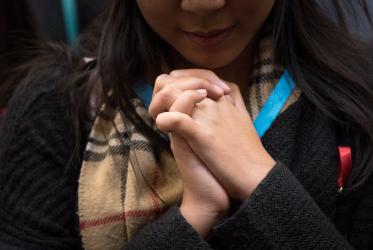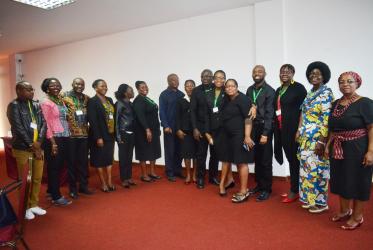Displaying 1 - 14 of 14
Ethiopia is praying for peace amid conflict and COVID-19
21 April 2021
WCC sends letters of concern over violence and conflict in Ethiopia
04 February 2021
WCC condemns recent extremist attacks around the world
03 November 2020
WCC Executive Committee speaks out on migrant crises
12 June 2015







